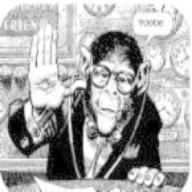This is for a literary analysis class, whatever you wanna call it. I'm trying to edit and revise. Anyway, the prompt was something like this: "citing examples from the readings, compare/contrast how ancient hindus/greeks viewed divine punishment and reward for moral acts."
I lead with the unsatisfying theses/opening paragraph:
"Hindu and Greek mythologies hold almost diametrically opposed views on moral obligations and their consequences"
New paragraph sentence 1: "Throughout the Ramayana, it's made clear that one is meted out boons and punishments based on one's moral actions alone; a code of justice that karma mechanically carries out.
Now, all other criticisms aside, I was told that my "it's" in that line is a pronoun with no antecedent. Now, I'm not that great with grammar or mechanics, so help me see why. To me, it seems that "it's" refers to the object of that sentence- "that one is meted out..." although that does come afterwards, so i guess it's not an antecedent. Additionally, we have a pretty good idea of what "it" refers to from the previous sentence, the title of the paper, and because the subject of the prompt's question.
I imagine most of that doesn't matter, but the sentence just sounds correct to me. i mean, can you not say "It's about to rain" if you haven't mentioned the weather already?
I assume that it is wrong, but why? It sounds correct.
Grammar question, hear me out?
2015-09-25 3:03 pm
回答 (2)
2015-09-25 3:21 pm
I tend to agree with you. Hard to believe it's never correct, even in formal English, to say, "It is clear that...".
I think "It is going to rain" is slightly different; there, it is understood (ha ha) that 'it' refers to the weather.
You could say, "The Ramayana makes clear that one is...".
I think "It is going to rain" is slightly different; there, it is understood (ha ha) that 'it' refers to the weather.
You could say, "The Ramayana makes clear that one is...".
2015-09-25 3:06 pm
When you say "it is" made clear, you aren't clarifying what "it" is.
收錄日期: 2021-04-21 21:34:47
原文連結 [永久失效]:
https://hk.answers.yahoo.com/question/index?qid=20150925070317AA2c8wj

